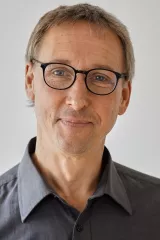Joint press release by Germanwatch and the Institute for Agriculture and Trade Policy (IATP)
Bonn, 5.11.2012: 140 civil society actors from 22 industrial and emerging states call for a fundamental reform of energy and agricultural policies in order to fight hunger and climate change worldwide. This is a result of the "Dialogue on Transformation" which took place in Bonn last weekend. The participating organisations on the one side urge to the right to development and on the other side also to a form of development that accepts the boundaries of the planet. They discussed strategies to combat poverty and simultaneously climate change. One basic question was how the energy demand here and in countries of the south can be satisfied in a sustainable and affordable way, while also curbing climate change at the same time. Another issue was how the right to food can be implemented, in particular for and with the 870 million undernourished people on the planet. Since April 2012 Germanwatch and the American "Institute for Agriculture and Trade Policy" are linking basic groups, social movements, NGOs and foundations in the areas of climate and food policy with the "Dialogue on Transformation" in order to develop new solutions.
Christoph Bals, policy director of Germanwatch, was pleased with this commitment: "This dialogue contributes to unifying many important individual voices to a powerful symphony for a solution to the urgent questions of the climate and food crisis. Important civil society actors and social movements came together to discuss their different roles in the struggle for the necessary transformation of the energy and agriculture system."
Jim Harkness, president of the "Institute for Agriculture and Trade Policy" adds: "This was a long overdue dialogue between the movements for the necessary transformation of the energy and agricultural system. These movements have often worked separately despite their common goal of a just and sustainable future. This cooperation is necessary to oppose something to the non-braked economic and political influence of the fossil and agrochemical companies."
Furthermore, the results of the Rio+20 process were discussed. Here it was discussed how different actors can contribute to the given mandate for national reports about the necessary transformation of the agriculture and food system. Hans R. Herren, member of the international steering group of the dialogue and co-author of the World Agricultural Report, drives this forward in countries like Kenya, Senegal and Ethiopia: "A change of course in agriculture is overdue. Goals are food security for all, rural development with improved conditions, especially for small-scale farmers, particularly for women, as well as a sustainable use of natural resources. Such future farming must increasingly rely on crops and cultivars that are adapted to local conditions and conserve natural resources for future generations. For this, the foundation must be build within national action plans".
The conference is part of a longer dialogue project that is organized by Germanwatch and the "Institute for Agriculture and Trade Policy", Minneapolis and supported by Stiftung Mercator.
Contact:
- Christoph Bals, Policy Director of Germanwatch, bals@germanwatch.org, +49 (0)228 6049217


